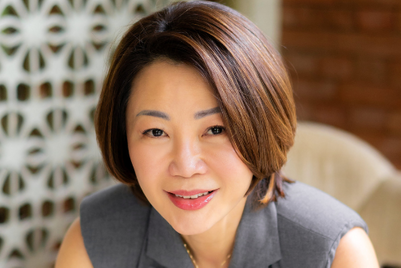.jpg&h=570&w=855&q=100&v=20250320&c=1)
In a significant move, YouTube has laid out its strategy to grapple with the transformative effects of AI technology on the music industry.
The platform aims to strike a balance between harnessing AI's creative potential and protecting artists' rights, in an industry facing the disruptive force of technology.
Underlining its commitment to creative innovation, YouTube introduces its three guiding principles:
Principle 1: Responsibly embrace AI
YouTube acknowledges AI's burgeoning influence on the music landscape, revealing that in 2023 alone, the platform saw a staggering 1.7 billion AI-related views.
The platform's Music AI Incubator program is a focal point, serving as a conduit for close collaboration with pioneering artists, songwriters, and producers.
This partnership aims to shape YouTube's AI approach and maintain its relevance in fostering musical creativity.
Principle 2: Preserve creative integrity
While YouTube is bullish on AI's potential to enhance music's unique creative expression, it's cognizant of the necessity to protect artists' rights.
The company alludes to its formidable Content ID system as a framework that ensures artists are compensated for their content.
YouTube signals that a comparable system might be deployed for AI-generated music, particularly for music partners willing to partake.
Principle 3: Scale trust and safety measures
Recognising the magnitude of managing generative AI, YouTube intends to expand its robust trust and safety apparatus to confront potential challenges.
The platform commits to employing AI technologies to identify and thwart issues such as copyright abuse, misinformation, and spam. YouTube's ambition is to utilise AI as a countermeasure, thereby safeguarding the interests of creators, artists, and the larger community.
This strategy reflects YouTube's dedication to crafting a comprehensive approach to AI that stands to reshape the music ecosystem. The principles are poised to pave the way for the platform to navigate the evolving landscape with prudence and innovation.
Notably, this comes in stark contrast to Universal Music Group's (UMG) more hesitant stance towards AI. UMG, earlier this year, urged streaming services like Spotify to restrict AI firms from using its music for training models and even issued copyright strikes on AI-generated content on YouTube.
UMG will now be the first partners of the program and will allow YouTube access to its stable of artists including its roster of talent, including songwriter and producer Anitta, songwriter and producer Ryan Tedder of OneRepublic; rapper, musician, entrepreneur and philanthropist Yo Gotti; and the estate of Frank Sinatra.
The dynamic between YouTube and UMG underscores a common pain point in the creative industries—appropriately compensating artists and rightsholders for AI-generated work. UMG's alignment with YouTube signals a proactive approach to tackle the issue collectively.
Aside from YouTube, three major label groups are reportedly in talks with major music streaming services like Spotify, Apple Music, and Amazon Music.
However, these discussions center around devising mechanisms to remove AI-generated vocal tracks mimicking popular artists' voices.
This dialogue parallels the Digital Millennium Copyright Act (DMCA) framework but pivots to violations of rights of publicity, highlighting the complex legal tapestry around AI-generated content.
Some artists like Grimes and Holly Herndon are already embracing AI technology, training their AI voice models for public consumption.
Concurrently, emerging companies like Uberduck, Supertone, Lingyin Engine, and Covers.ai are entering the fray, marketing AI models to replicate voices. Covers.ai, for instance, reported over 100,000 sign-ups in anticipation of its AI voice replication offering.
Blockchain-based music platform Audius also paving the way for artists to "opt-in" for AI-generated content on their artist pages, thus segregating this content into a dedicated section.
In the creative sphere, Adobe will pay creators that use its newly announced generative AI tools to create content and allow them to have the option to prevent their work from being used to train the AI model.



.jpg&h=334&w=500&q=100&v=20250320&c=1)


.jpg&h=334&w=500&q=100&v=20250320&c=1)


.jpg&h=334&w=500&q=100&v=20250320&c=1)



.jpg&h=268&w=401&q=100&v=20250320&c=1)


.png&h=268&w=401&q=100&v=20250320&c=1)

.jpg&h=268&w=401&q=100&v=20250320&c=1)
